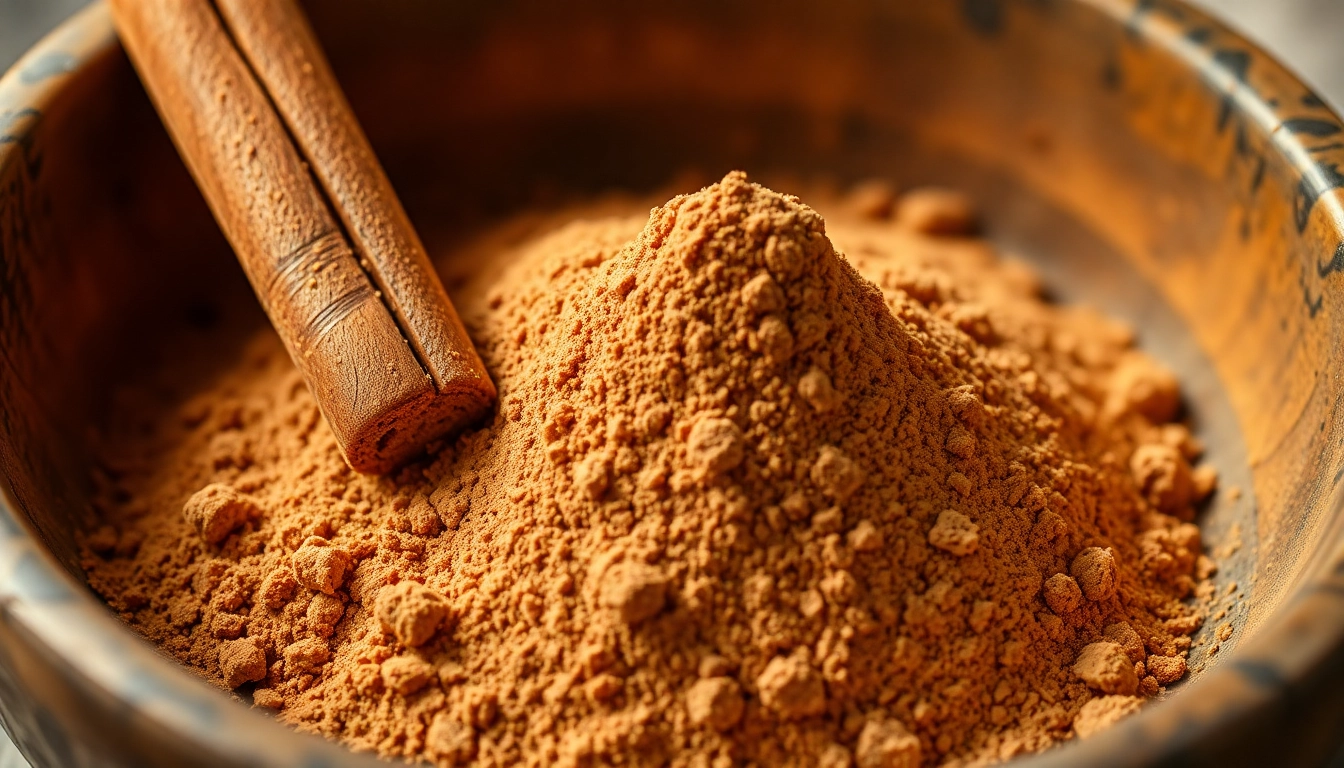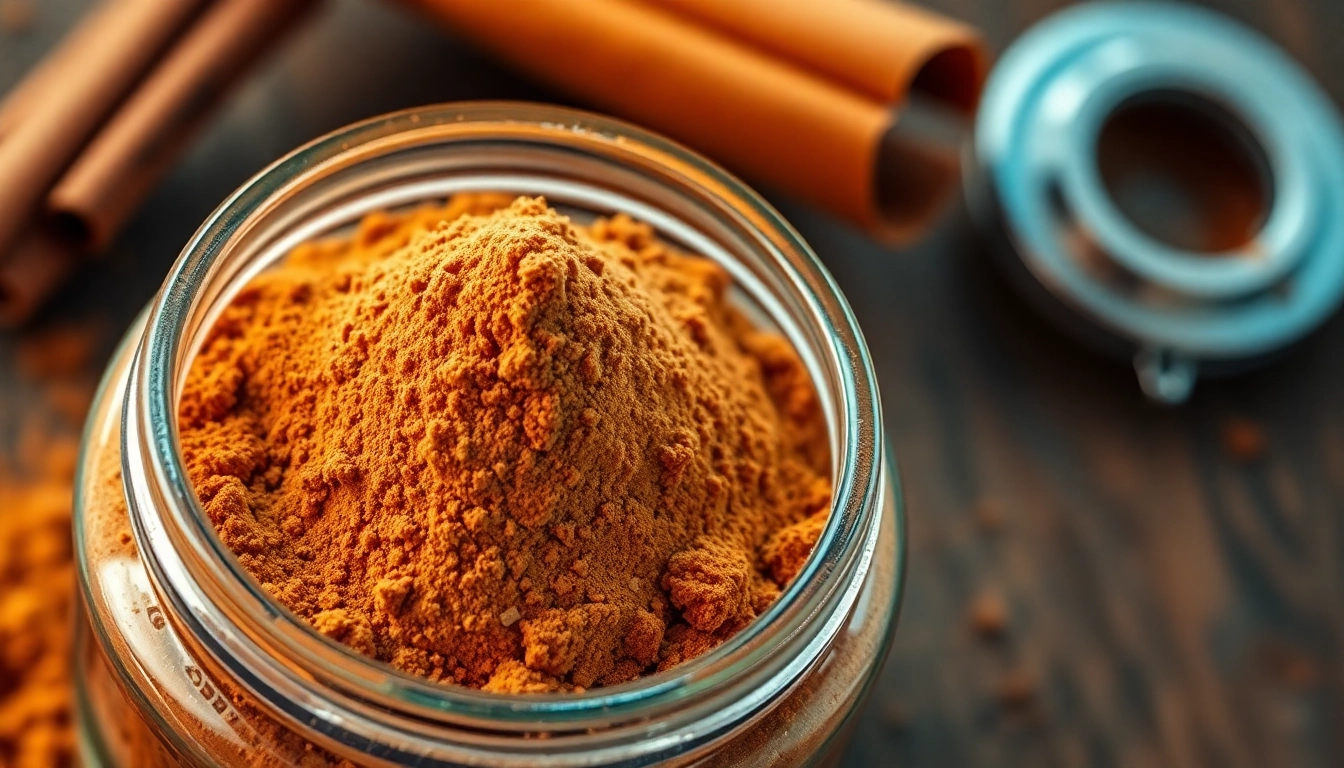Unlocking the Potential of Cinnamon Powder: A Comprehensive Guide to Quality, Applications, and Market Dynamics
In the vast and diverse world of spices, cinnamon powder holds a special place for its unique aroma, sweet flavor, and numerous health benefits. As a globally cherished spice, cinnamon is not only a staple in traditional cuisines but also a key ingredient in the burgeoning health and wellness sector. For businesses and consumers alike, understanding what distinguishes high-quality cinnamon powder from inferior variants is crucial to making informed choices and leveraging its full potential. Cinnamon Powder offered by reputable manufacturers like Spice Nest exemplifies rigorously tested quality standards, ensuring product purity, safety, and consistency.
Understanding Cinnamon Powder: Types, Uses, and Benefits
Different Varieties of Cinnamon Powders Available Globally
Globally, cinnamon can be classified mainly into two primary types: Ceylon cinnamon (Cinnamomum verum) and Cassia cinnamon (Cinnamomum cassia). Each type has distinct characteristics, cultivation regions, and chemical compositions. Ceylon cinnamon, often referred to as “true cinnamon,” is primarily grown in Sri Lanka and is prized for its delicate flavor, thinner bark, and lower coumarin content—a compound that can be harmful in large quantities. Its light brown color and layered appearance distinguish it visually. Conversely, Cassia cinnamon, more common and widely available in markets like India and China, has a darker hue, a stronger aroma, and a more intense flavor profile.
The choice between these varieties depends on the intended application, flavor preference, and health considerations. Authentic manufacturers such as Spice Nest prioritize sourcing Ceylon cinnamon for premium markets, aligning with global quality standards and health safety regulations.
Health Benefits of Incorporating Cinnamon Powder into Daily Diets
Cinnamon is rich in bioactive compounds such as cinnamaldehyde, cinnamic acid, and cinnamyl alcohol, which confer multiple health benefits. Regular consumption of cinnamon powder has been linked with improved blood sugar regulation, enhanced insulin sensitivity, and lowered risk factors for cardiovascular diseases. Its antioxidant properties combat oxidative stress, reducing inflammation and potentially delaying age-related cellular damage.
Furthermore, cinnamon has antimicrobial qualities, which can aid in digestive health and bolster immune defenses. It is also gaining popularity as a superfood ingredient in smoothies, baked goods, and health supplements due to its ability to enhance flavor while providing nutritional value. Incorporating high-quality cinnamon powder, certified and processed under stringent standards, maximizes these benefits while ensuring safety and purity.
Popular Culinary Applications and Recipe Inspirations with Cinnamon Powder
Cinnamon powder is a versatile ingredient used across a myriad of culinary traditions. Its hallmark warm and sweet aroma makes it ideal for baking, desserts, beverages, and savory dishes. Classic recipes like cinnamon rolls, apple pies, and spiced teas showcase its flavor profile. Additionally, cinnamon is used in Middle Eastern, Indian, and Southeast Asian cuisines to add depth to curries, stews, and rice dishes.
Innovative chefs now incorporate cinnamon into health-focused recipes such as smoothies, oatmeal, and cereals. For beverage lovers, cinnamon-infused teas and coffees are popular for their invigorating aroma and potential metabolic benefits. For manufacturers, understanding these culinary applications allows for product innovation, whether in packaged spices or ready-to-eat products infused with cinnamon flavor.
Manufacturing and Quality Standards for Cinnamon Powder
Key Steps in Sourcing and Processing Cinnamon for Purity and Flavor
Ensuring high-quality cinnamon powder begins at the sourcing stage, where selecting authentic cinnamon bark from certified plantations is paramount. Reputable manufacturers like Spice Nest maintain strong relationships with trusted farmers, ensuring the raw material is free from adulteration and pesticides. The processing involves meticulous cleaning, curating only select bark strips, and drying under controlled conditions to retain flavor and prevent microbial contamination.
Following drying, the cinnamon is ground using advanced milling techniques that preserve essential oils, contributing to aroma and flavor. Sieving ensures uniform particle size, which influences product mixability and appearance. Implementing simple yet effective steps like quality control checkpoints throughout processing guarantees a premium end product that embodies purity and consistency.
Certification Processes Ensuring Quality and Safety Compliance
Compliance with international safety standards is critical for export and global distribution. Certification bodies such as ISO, HACCP, and organic certifications verify that manufacturing practices adhere to rigorous hygiene, safety, and quality protocols. At Spice Nest, certifications are complemented by continual testing for contaminants, microbial load, heavy metals, and pesticides.
Documentation like certificate of analysis (COA) and authentication certificates provide transparency and trust for buyers. A reliable cinnamon powder supplier not only meets but exceeds these standards, helping brands to distinguish themselves with quality assurance.
Packaging Innovations to Maintain Freshness and Shelf Life
Protecting cinnamon powder from exposure to light, moisture, and air is essential for maintaining its potent aroma and flavor. Modern packaging solutions include vacuum-sealed pouches, airtight jars, and laminated resealable sachets. These innovations prevent oxidation of essential oils and inhibit microbial growth, extending shelf life from 12 to 24 months in optimal conditions.
At Spice Nest, employing advanced packaging technology ensures that clients receive products with maximum freshness, color, and aroma, reinforcing consumer trust and satisfaction.
Choosing a Reliable Cinnamon Powder Supplier
Criteria for Selecting Authentic and Reputable Manufacturers
When sourcing cinnamon powder for business, authenticity, transparency, and compliance are key criteria. A reputable supplier should be able to demonstrate traceability of raw materials, adherence to quality standards, and consistent product quality. Certifications and third-party audits serve as validation indicators. Additionally, the supplier’s reputation, industry experience, and capacity for customization influence procurement decisions.
Understanding Export Capabilities and Global Distribution Networks
Efficient export logistics and extensive distribution channels are crucial for timely delivery across markets. Leading manufacturers like Spice Nest boast robust supply chains capable of exporting bulk quantities to global clients. They ensure compliance with international export norms and remain flexible to cater to diverse packaging and documentation requirements.
How to Evaluate Product Consistency and Customer Testimonials
Consistency in flavor, aroma, and appearance across batches signifies reliable manufacturing. Requesting sample testing, performing sensory evaluation, and reviewing detailed product specifications help buyers gauge quality. Moreover, customer testimonials and case studies provide insights into supplier reliability, responsiveness, and after-sales support, enabling well-informed procurement choices.
Market Trends and Consumer Preferences for Cinnamon Powder
Emerging Health Trends Boosting Cinnamon’s Popularity
The global shift toward natural, organic, and functional foods has significantly elevated cinnamon’s status. Consumers are increasingly seeking products linked to health benefits—such as blood sugar regulation, anti-inflammatory properties, and antioxidant support. Organic certification and non-GMO labels further drive demand for authentic, high-quality cinnamon powder.
In addition, the rise in plant-based and clean-label food products creates opportunities for cinnamon to be incorporated into snacks, beverages, and dietary supplements, reinforcing its position as a superfood ingredient.
Innovative Product Formats and Flavors in the Cinnamon Segment
Modern consumer preferences favor convenience, leading to innovative formats such as cinnamon-infused oils, extracts, capsules, and flavored snacks. Additionally, flavor innovation encompasses blends with vanilla, chocolate, or chai, expanding cinnamon’s culinary versatility. Ready-to-eat and ready-to-mix products featuring cinnamon appeal to busy lifestyles, fueling industry growth.
Pricing Strategies and Competitive Positioning in the Spice Industry
Premium pricing is justified for certified organic, Ceylon varieties, and products with eco-friendly packaging. Conversely, competitive pricing for Cassia cinnamon meets market demand without compromising quality. Educating consumers on the differences and health benefits of authentic cinnamon helps brands position their products as value-oriented and premium segments.
Incorporating Cinnamon Powder into Your Business
Recipe Development and Product Formulation Ideas
Innovators in the food industry leverage cinnamon as a core ingredient in diverse product lines, including baked goods, beverages, health bars, and spice blends. Developing signature recipes that highlight its aromatic profile involves experimenting with quantities, complementary ingredients, and processing techniques to optimize flavor.
Marketing Strategies to Highlight Quality and Authenticity
Effective branding emphasizes certifications like organic, ISO, and HACCP, and narrates the sourcing story—highlighting traceability and purity. Using appealing packaging, informative labels, and digital marketing campaigns targeting health-conscious consumers can boost product visibility. Taste tests, demonstrations, and influencer collaborations further enhance brand recognition.
Partnering with Trusted Manufacturers for Consistent Supply
Building longstanding relationships with reliable suppliers such as Spice Nest ensures a steady supply of high-quality cinnamon powder, minimizes risks, and supports innovation. Clear communication about specifications, lead times, and tQM practices fosters successful collaborations. Such partnerships are vital for scaling product lines and expanding market reach.

